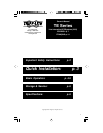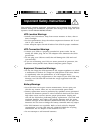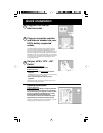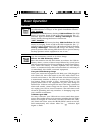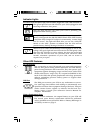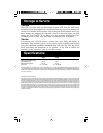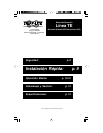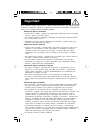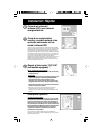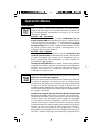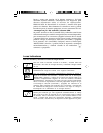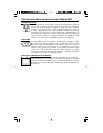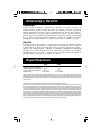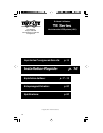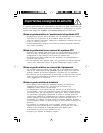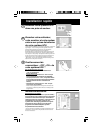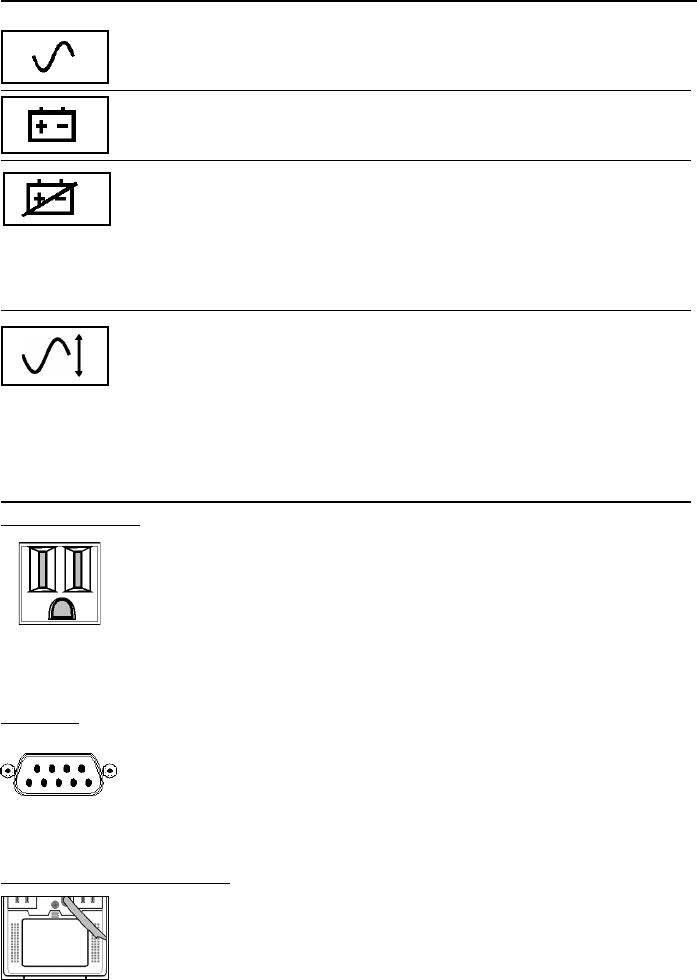
5
Indicator Lights
All Indicator Light descriptions apply when the UPS is plugged into a wall outlet and turned on.
This green light will turn ON whenever your UPS is plugged in and
receiving normal AC line power.
This red light will turn ON when your UPS is providing your
equipment with battery power.
This yellow light will turn ON continuously after you test your UPS
battery’s charge with the “MUTE/TEST” Switch if the UPS’s battery
is less than fully charged. If it stays on continuously, contact Tripp
Lite for service. The light will flash after you set the “OFF/ON”
Switch to the “OFF” position to indicate that the UPS will not
provide battery backup during a blackout or brownout.
Whenever your UPS is automatically correcting high or low AC line
voltage, this green light will turn ON and the UPS will gently click.
The more the UPS has to correct voltage, the more the green light
will turn ON and the more the UPS will click. These are both
normal, automatic operations of your UPS, and no action is
required on your part.
Other UPS Features
AC Receptacles
The receptacles on your UPS provide your connected equipment
with AC line power during normal operation and with battery
power during blackouts and brownouts. They also protect your
equipment against damaging surges and line noise. Select UPS
models also feature “surge-only” AC receptacles (labelled on the
back of the UPS) that provide peripherals with surge protection
without committing precious battery power to support them
during blackouts.
DB9 Port
The DB9 port connects your UPS to any workstation or server.
Use with Tripp Lite software and cabling to automatically save
open files and shut down equipment during a blackout. This port
sends contact-closure signals to indicate line-fail and low-
battery status. Consult your software’s Owner’s Manual for
complete information.
Battery Replacement Door
Under normal conditions, the original battery in your UPS will
last several years. Battery replacement should be performed
only by qualified service personnel. Refer to “Battery Warnings” in
the Safety section on page 2.



